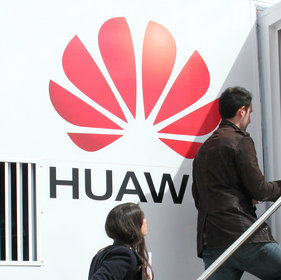
The US has intensified its campaign against Huawei, accusing the Chinese equipment vendor of stealing trade secrets from six US technology companies and using the intellectual property to fuel its own commercial growth.
The latest accusations of "racketeering" carry echoes of previous charges against Huawei, which the US government is battling on several fronts against the backdrop of a trade war with China.
The US Department of Justice (DOJ) says Huawei entered into confidentiality agreements with US companies and then misappropriated secrets for its own commercial use. The intellectual property it stole includes source code and user manuals for Internet routers, antenna technology and robot-testing technology, according to a DOJ statement.
The illegal activity gave Huawei a commercial advantage, allowing it to "drastically" cut its own research and development expenses, says the US.
It continues to pursue the Chinese vendor for allegedly lying to financiers about the company's relationship to Skycom, an equipment supplier that sold products to Iran in breach of US trade sanctions. US prosecutors have argued that Skycom is a Huawei subsidiary and are seeking the extradition of Meng Wanzhou, Huawei's chief financial officer, to face charges on US soil. She is currently under house arrest in Canada, where she has been detained since December 2018.
Huawei has long been accused of stealing Western intellectual property and using this to develop its own low-cost products. In the past decade, the company has dislodged Ericsson as the biggest supplier of mobile network infrastructure to Europe's telecom service providers.
In 2003, it was sued by Cisco, a US supplier of Internet routers and switches, for allegedly copying software, source code and documentation as well as infringing on several patents.
Last year, the US issued an indictment against Huawei for allegedly stealing trade secrets from T-Mobile US relating to a robotic phone-testing system called Tappy.
In its formal response to the latest DOJ charges, Huawei described the new indictment as part of US efforts to damage Huawei's reputation and business "for reasons relating to competition rather than law enforcement."
The company said the new charges were based largely on "recycled civil disputes from the last 20 years that have been previously settled, litigated and in some cases rejected by federal judges and juries."
For all the latest news from the wireless networking and services sector, check out our dedicated mobile content channel here on Light Reading.
The DOJ's latest move comes after US authorities failed to persuade the UK government to ban Huawei from the country's 5G market, where it currently provides network gear to several network operators.
In an effort to find a compromise, the UK decided to exclude Huawei from the sensitive "core" of 5G networks but said it would be allowed to continue providing radio access network equipment, provided it does not exceed a cap of 35% in any individual network – measured in terms of basestations or traffic levels.
US President Donald Trump was said to be outraged by the UK's decision, while several leading members of the UK's ruling Conservative Party have reportedly urged the government to backtrack and impose a full ban on Huawei.
The US has similarly been leaning on governments in other European countries to ban Huawei, arguing it is a threat to national security. The firm's opponents continue to argue that its products may contain hidden software allowing the Chinese government to spy on other countries or even cripple networks – charges Huawei has repeatedly denied.
Related posts:
— Iain Morris, International Editor, Light Reading
About the Author(s)
You May Also Like











